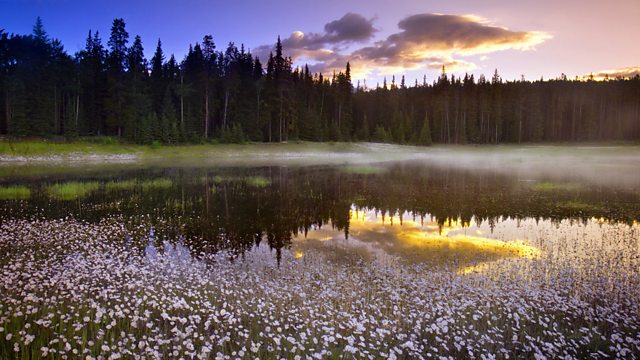Chris Sperring goes in search of sika deer and discovers how conservation groups like the RSPB and National Trust are managing the delicate balance of deer, people and habitats.
If you're up early enough in Purbeck, Dorset and you're lucky enough to spot a deer, it's most likely to be a Japanese sika deer. This area has the largest population in England and the deer are often to be seen grazing on the salt marshes and heath that are such an important part of the landscape here. And if you're travelling on one of the Brownsea Island ferries you might even see one in the water, swimming to or from the island - sika are good swimmers.
In evolutionary terms sika deer are recent arrivals to the UK, having been introduced from the Far East into deer parks a little over 150 years ago. Some escaped, others were released and they bred successfully in the countryside beyond park boundaries. Today the Japanese sika is free living in the wild and is now widespread across northern and western mainland Scotland and in the Scottish Borders, well established in Northern Ireland and found in concentrated pockets in England. The sika in Purbeck originate from deer introduced to Brownsea Island under the mistaken view that the surrounding water would contain them.
Naturalist, Chris Sperring, is up at the crack of dawn to join Angela Peters of the National Trust and Toby Branston of the RSPB as they begin the Spring count of sika deer in Purbeck. He talks to ecologist Dr Anita Diaz of Bournemouth University and discovers why sika are doing so well in this part of the world, what impact they're having on one of the country's most biodiverse areas and just what makes these elegant and beautiful animals tick. He also finds out how conservation organisations like the RSPB and National Trust are managing the delicate balance of deer, people and internationally important habitats.
Presented by Chris Sperring
Produced by Karen Partridge.
Last on
Broadcasts
- Tue 1 May 2012 11:00主播大秀 Radio 4
- Thu 3 May 2012 21:00主播大秀 Radio 4

